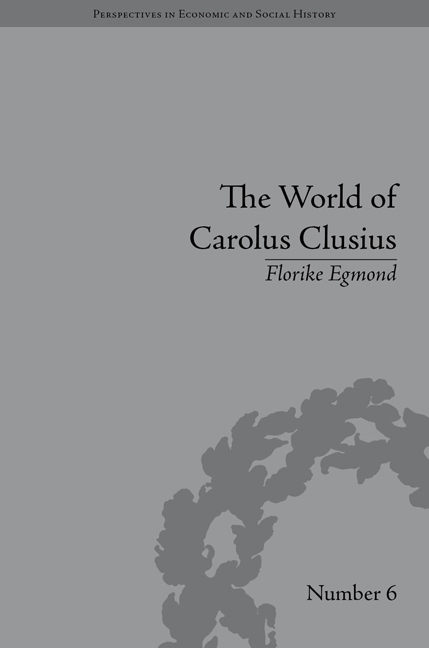Conclusion
Summary
the art and discipline of herbs does not consist in words but in deeds and labour
A Collective Enterprise
Natural history in sixteenth-century Europe was a ‘collective enterprise’ undertaken by a vast number of men and women of diverse social background with many types of expertise and a wide range of interests and purposes. The term collective enterprise does not necessarily imply a concerted effort or the uniformity of individual aims, let alone an evenly spread awareness of that larger enterprise. Nor did the most acute awareness of that enterprise necessarily go with the greatest expertise or the widest ranging connections. Few members of Clusius's world – Clusius himself probably included – were explicitly bent on creating natural history as a discipline, although some probably realized that this was a consequence of their activities. A very large number of them, however, were aware that their joint efforts were contributing to an advance of knowledge concerning living nature and saw their own individual activities as part of this larger enterprise. And they realized that cooperation was indispensable to these efforts. Only a few limited themselves to simple exchanges of rare plants or the mere delivery of some interesting plant or animal to Clusius.
- Type
- Chapter
- Information
- The World of Carolus ClusiusNatural History in the Making, 1550–1610, pp. 209 - 220Publisher: Pickering & ChattoFirst published in: 2014



